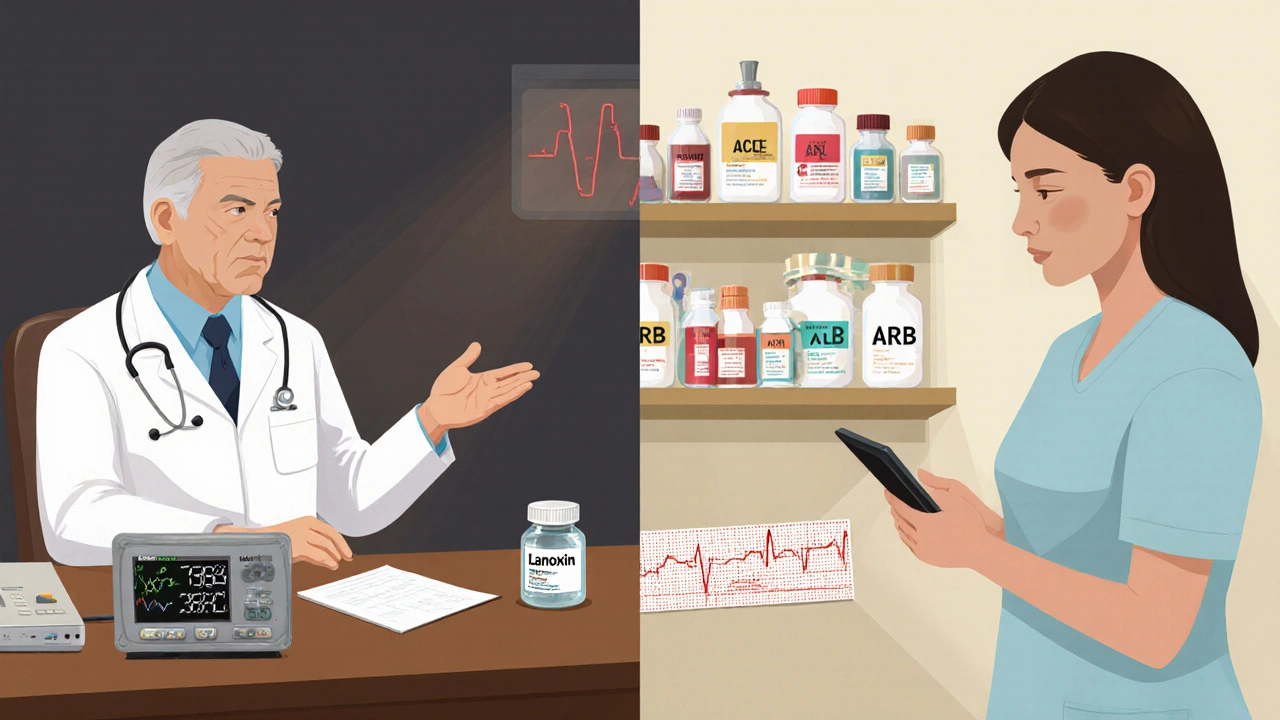Digoxin Side Effects: What You Need to Know Before Taking It
When your doctor prescribes digoxin, a heart medication used to treat atrial fibrillation and heart failure by slowing and strengthening heartbeats. Also known as digitalis, it's been used for over 200 years—but its narrow safety window means even small mistakes can lead to serious problems. Many people take digoxin without issues, but if your kidneys aren’t clearing it well, or if you’re low on potassium or magnesium, the drug can build up to dangerous levels. That’s when digoxin side effects start showing up—not as mild discomfort, but as real, urgent symptoms.
Common signs include nausea, vomiting, loss of appetite, and blurry or yellow-tinted vision. These aren’t just "annoyances"—they’re early warnings of digoxin toxicity, a life-threatening condition caused by excessive levels of the drug in the blood. More serious symptoms like irregular heartbeat, dizziness, confusion, or fainting mean you need help right away. Older adults and people with kidney disease are at higher risk, and digoxin often interacts with other meds like diuretics, antibiotics, or even some herbal supplements. It’s not just about taking the pill—it’s about understanding how your body processes it.
What makes digoxin tricky is that its effects don’t always match how you feel. You might think you’re doing fine, but a simple blood test could show toxic levels. That’s why regular monitoring—blood tests for digoxin levels, potassium, and kidney function—isn’t optional. It’s part of the treatment. If you’re on a water pill (like furosemide), your potassium might drop, making digoxin more dangerous. If you’ve had a recent illness, dehydration, or changes in diet, your risk goes up. This isn’t a drug you can take on autopilot.
Below, you’ll find real-life insights from people who’ve dealt with digoxin side effects, what doctors look for when things go wrong, and how to spot trouble before it becomes an emergency. You’ll also see how it compares to other heart meds, what to do if you miss a dose, and how diet and other medications can change how digoxin works in your body. This isn’t just theory—it’s what matters when your heart is on the line.

